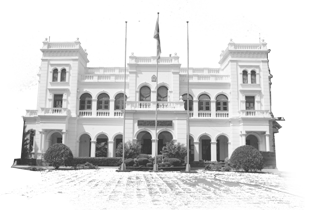Sri Lanka’s economic transformation has been recognized by the International Monetary Fund and the World Bank.
The Prime Minister recounted the government’s commitment to build a sound society with inclusivity, and democracy followed by a future vision, and work in cooperation with India and the international community for prosperous Sri Lanka.
The Prime Minister made these remarks while participating in the 2025 NDTV World Summit in New Delhi on 17 October 2025.
Prime Minister Dr. Harini Amarasuriya delivered the keynote address titled “Steering Change in Uncertain Times”. The Summit, themed “Edge of the Unknown: Risk, Resolve, Renewal,” brought together global leaders, thinkers, and innovators to discuss the challenges and opportunities of a rapidly changing world.
In her remarks, the Prime Minister reflected on Sri Lanka’s democratic renewal, economic recovery, and partnership with India. She emphasised the need for responsible leadership, resilience, and cooperation in navigating global uncertainty.
Addressing further, the Prime Minister Dr. Amarasuriya recounted Sri Lanka’s recent journey through crisis to recovery, highlighting the aragalaya movement as a turning point in citizens’ demand for transparency, accountability, and inclusive governance.
The Prime Minister outlined the government’s economic reform agenda under President Anura Kumara Dissanayake, including debt restructuring, sound fiscal management, and digital transformation. The IMF and World Bank have recognised Sri Lanka’s fiscal consolidation as one of the largest in its history.
The Prime Minister noted the unprecedented increase in women’s representation in Parliament—now nearly 10%—and the inclusion of diverse voices, including persons with disabilities and members of the Malayagam community.
Prime minister Dr. Amarasuriya underscored the deepening partnership between India and Sri Lanka, grounded in India’s Neighbourhood First Policy and MAHASAGAR Vision. She acknowledged India’s vital support during Sri Lanka’s 2022 economic crisis and the ongoing collaboration in areas such as energy, connectivity, education, defence, trade, and technology.
She acknowledged the need for upgrading the India–Sri Lanka Free Trade Agreement (1998) and exploring integration into India’s manufacturing and service value chains, aligning with the Viksit Bharat vision.
The Prime Minister highlighted initiatives such as GovPay, e-identity systems, and open data portals to promote transparency and eliminate corruption. She stressed that laws alone cannot rebuild nations—values and civic ethics are essential.
Addressing young people across South Asia, Prime Minister Dr. Amarasuriya urged them to view innovation not only as technological but as moral—shaping systems that are fair, inclusive, and humane.
In conclusion, the Prime Minister reaffirmed Sri Lanka’s commitment to building a clean, inclusive, and forward-looking democracy, and to working in partnership with India and the international community to promote shared prosperity in the region
Prime Minister’s Media Division



